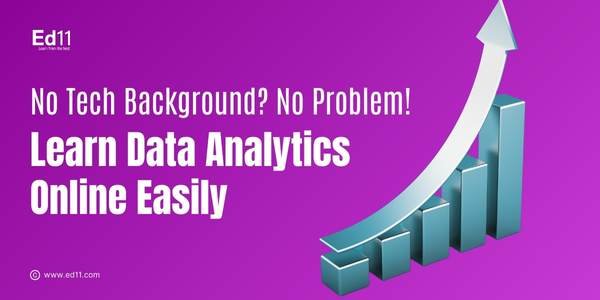Role of Data Mining in a Data Scientist Career
Learn how data mining plays a vital role in a data scientist's career by uncovering patterns, insights, and driving data-driven decisions.

As a Sr. Data Analyst, understanding the role of data mining data scientist career is essential. Data mining is a key part of the Data Science process, helping data scientists discover hidden patterns and insights from large datasets. This blog will explore how data mining supports a data scientist's work and why it is important for success in this field.
What is Data Mining
Data mining is the process of analyzing large amounts of data to uncover useful information, patterns, and trends. It helps data scientists make informed decisions and predict future outcomes. By using data mining techniques, a data scientist can turn raw data into valuable insights that drive business growth.
Why Data Mining is Important for Data Scientists
-
Discover Hidden Patterns: Data scientists use data mining to find patterns in large datasets that are not easily visible. These patterns can help businesses understand customer behavior, market trends, and more.
-
Make Data-Driven Decisions: With data mining, a data scientist can provide evidence-based recommendations to solve problems and improve business strategies.
-
Predict Future Trends: Data mining helps data scientists build predictive models that forecast future outcomes, giving businesses a competitive edge.
-
Save Time and Resources: By automating data analysis, data mining helps data scientists quickly process large amounts of information, saving time and reducing manual work.
Data Mining Techniques for Data Scientists
-
Classification: Pursuing a Data Scientist Career offers opportunities to leverage data mining techniques for uncovering valuable insights from big data. By identifying hidden patterns and trends, data scientists drive data-driven decision-making across industries. This career path emphasizes skills in predictive modeling and trend analysis. Mastering data mining enhances a data scientist's ability to solve complex problems efficiently. A Data Scientist Career is essential for organizations seeking competitive advantages through data interpretation.
-
Clustering: Pursuing a Data Scientist Career offers opportunities to master techniques like clustering, essential for uncovering hidden patterns in big data. By leveraging clustering, data scientists can enhance predictive models and personalize customer experiences. This skill is crucial for driving data-driven decision-making and business growth. Mastery of clustering can set professionals apart in a competitive job market. As businesses increasingly rely on data insights, expertise in clustering boosts career advancement for data scientists.
-
Regression Analysis: Data Scientist Career offers opportunities to harness data mining techniques to uncover hidden patterns and correlations in large datasets. By extracting valuable insights, data scientists can predict trends and drive strategic decision-making. Advanced data mining methods enable model optimization for improved accuracy and performance. This expertise allows organizations to gain a competitive edge and fuel future growth. A successful Data Scientist Career involves mastering these skills to transform data into actionable business solutions.
-
Association Rule Learning: Data scientists utilize data mining techniques to uncover hidden patterns and relationships within massive datasets. By analyzing customer behavior and market trends, a data scientist can help businesses tailor marketing campaigns and optimize sales strategies. Advanced data mining methods enable the identification of target audiences and prediction of future market demands. This empowers companies to make data-driven decisions, enhancing overall business performance. As a result, data scientists play a vital role in driving growth and competitive advantage.
-
Anomaly Detection: data mining, identifying outliers is a crucial technique that helps a data scientist detect anomalies that may signal data quality issues or hidden opportunities. By analyzing patterns and trends, data scientists can uncover unusual data points that might reveal fraud, market shifts, or system errors. Effective data mining allows for proactive decision-making and optimization of business strategies. Detecting these anomalies ensures data integrity and enhances predictive modeling. This process empowers data scientists to transform raw data into actionable insights.
Tools Used in Data Mining by Data Scientists
-
Python and R: Popular programming languages for data mining and analysis include Python, R, SQL, Java, and Scala. Python and R are widely used for statistical analysis and machine learning, making them essential for a successful Data Scientist Career. SQL is vital for managing and querying large datasets, while Java and Scala are powerful for big data processing. Mastering these languages can significantly boost your Data Scientist Career by enhancing your ability to extract insights from complex data.
-
SQL: A Data Scientist Career involves managing and querying large databases to extract meaningful insights and drive data-driven decisions. Professionals in this field use advanced tools and techniques to handle big data efficiently. Mastery in database management, data mining, and analytical skills are essential for success. A data scientist leverages machine learning and statistical models to solve complex business problems. This career path offers continuous learning and growth opportunities in the evolving data industry.
-
Hadoop and Spark: Big data tools are essential for advancing a Data Scientist Career, enabling professionals to process and analyze massive datasets efficiently. Tools like Hadoop, Spark, and Apache Flink streamline data storage, processing, and real-time analytics. Mastering these tools enhances a data scientist's ability to extract valuable insights, driving business decisions. Proficiency in big data technologies opens up vast opportunities in industries focused on data-driven strategies. Leveraging these tools is crucial for career growth in the evolving field of data science.
-
Tableau and Power BI: Visualization tools play a crucial role in a Data Scientist Career by transforming complex data mining results into clear, actionable insights. Tools like Tableau, Power BI, and Matplotlib enable data scientists to create interactive and visually appealing dashboards. These tools simplify the interpretation of large datasets, making it easier for stakeholders to understand trends and patterns. Effective visualization enhances decision-making, a key responsibility in a successful Data Scientist Career. Mastery of these tools is essential for presenting data-driven solutions clearly and impactfully.
How Data Mining Enhances a Data Scientist's Career
-
Stronger Problem-Solving Skills: Data mining plays a key role in boosting analytical thinking, helping data scientists uncover patterns and insights from large datasets. This skill is essential for solving complex business problems and making data-driven decisions. Mastering data mining is a vital step in building a successful Data Scientist Career, as it improves problem-solving and decision-making capabilities in today's data-driven world.
-
Better Business Insights: A data scientist who excels in data mining plays a key role in uncovering hidden patterns and trends. These insights drive smarter business decisions and create value. Building a Data Scientist Career requires strong skills in data analysis, machine learning, and problem-solving. By mastering these, you can help companies innovate and grow.
-
Higher Job Demand: Data Scientist careers are in high demand because of their ability to analyze complex data and uncover valuable insights. Skilled in data mining, they help companies find hidden patterns, improve decision-making, and drive business growth. These roles combine technical expertise with strategic thinking, making them essential for any industry focused on innovation and success.
-
Career Growth Opportunities: Mastering data mining is a key step in advancing your Data Scientist Career. It helps you uncover valuable insights, improve decision-making, and stand out in senior roles like Data Science Manager or Chief Data Officer. Sharpen these skills to lead in data science.
Real-World Applications of Data Mining in Data Science
-
Retail: Data scientists play a key role in understanding customer behavior. By using data mining, they analyze buying habits to uncover trends and patterns. This helps improve product recommendations, creating a personalized shopping experience. A Data Scientist Career involves working with tools like Python, SQL, and machine learning to handle large datasets and drive business growth. Their insights help companies make smarter decisions, boost sales, and enhance customer satisfaction. If you're considering a Data Scientist Career, learning data analysis and mining techniques is essential to succeed in this exciting and fast-growing field.
-
Healthcare: Data mining plays a big role in improving healthcare. It helps data scientists find patterns in medical data, which can reveal early signs of diseases. By analyzing this data, they create solutions to improve patient care and treatment plans. A Data Scientist Career in healthcare offers the chance to work on meaningful projects like disease prediction and personalized medicine. With skills in data mining, professionals can uncover insights that save lives and make healthcare smarter. This shows how data science is shaping the future of medicine.
-
Finance: Data mining plays a crucial role in the banking sector, enabling data scientists to uncover hidden patterns in vast datasets. By analyzing transaction data, they can identify anomalies that signal potential fraud and build predictive models for credit risk assessment. These insights enhance decision-making, improve security, and foster customer trust. With advanced algorithms, data scientists ensure efficient and accurate financial operations. Data mining continues to shape the future of banking analytics.
-
Marketing: Data scientists leverage data mining techniques to extract insights from customer feedback, identifying trends and preferences. This enables businesses to design personalized marketing strategies, optimize customer engagement, and boost brand loyalty. By analyzing large datasets, data scientists help predict customer behavior, ensuring campaigns reach the right audience at the right time.
Data mining is not just about analyzing data; it’s about uncovering insights that drive innovation and strategic decisions. For aspiring data scientists, mastering data mining tools like Python, R, or SQL is a game-changer. These tools help process large datasets, identify trends, and create predictive models. Techniques such as clustering, classification, and regression are key to solving complex business problems. Industries like healthcare, finance, and retail rely heavily on data mining for fraud detection, customer segmentation, and improving operational efficiency. As businesses grow more data-driven, the demand for professionals skilled in data mining is skyrocketing. By honing these skills, Sr. Data Analysts can bridge the gap to becoming data scientists, boosting their career prospects and making impactful contributions to their organizations.



















